Testosterone is often thought of as a hormone that, as Hans and Franz from the older SNL days would say, will pump you up. (For those of you who were not watching Saturday Night Live in the ’80s and ’90s, that’s a reference to a recurring skit that involved two muscle-bound Austrian bodybuilders who incessantly talked about, well, bodybuilding.)
But testosterone does so much more than play a role in helping you build muscle bulk. Having healthy levels of this sex hormone can impact a person’s sex drive (libido), bone mass, fat distribution, and the production of red blood cells and sperm. And, of course, healthy levels of this hormone may also impact muscle mass and strength.
Contrary to popular belief, testosterone isn’t just a male hormone. Females have natural levels of testosterone too. And if these levels are too low, women can experience negative effects on bone health, decreased libido, and irregular menstrual cycles.
There are many factors that can affect a person’s testosterone level, including obesity, certain medications, and low thyroid function. And believe it or not, certain dietary patterns and foods may affect testosterone levels as well. While eating these foods won’t literally “boost” your testosterone, they are worth exploring with your healthcare provider to know if they should be included in your diet.
Low-fat diets, diets that are very high in protein, and diets rich in fried food can negatively impact testosterone levels. Conversely, adopting a diet rich in anti-inflammatory foods may help maintain healthy testosterone levels.
When it comes to specific foods to focus on if you are trying to support healthy testosterone, there are some that are worth exploring. If you don’t have an underlying condition that is affecting your testosterone levels and you are motivated to include some testosterone “boosting” foods into the mix, here are eight that may help you achieve the testosterone levels you want to see. And next, read our article on the Best & Worst Drinks for Your Penis.
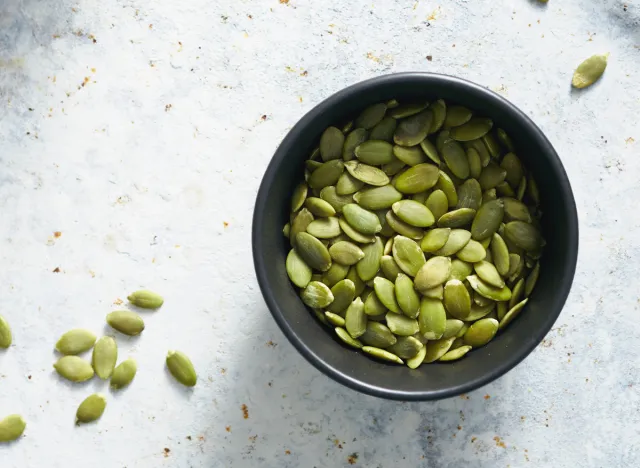

Pumpkin seeds are a natural source of zinc, a nutrient that may impact testosterone levels. One study showed that six months of zinc supplementation among slightly zinc-deficient elderly men doubled serum levels of testosterone. And another eight-week trial found that college football players who took a nightly zinc supplement showed increased T-levels and increased leg strength that was 250 percent greater than a placebo!
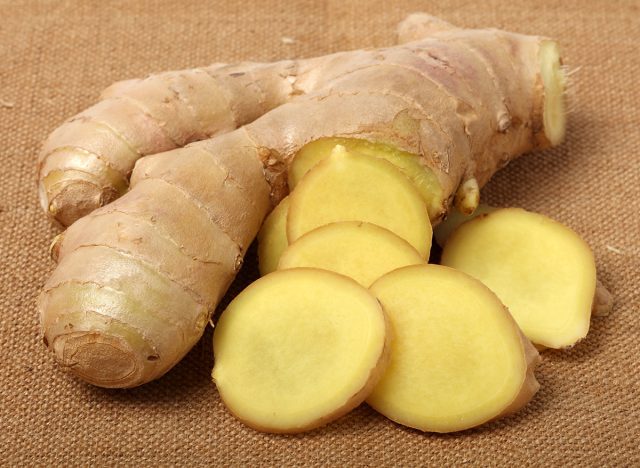

Most people know that ginger can add a satisfying zing to foods and drinks. But they may not realize that ginger may also impact testosterone. Consuming ginger can reduce oxidative stress in the testes, enhance the activity of certain antioxidant enzymes, normalize blood glucose, enhance nitric oxide production, and increase blood flow—all factors that can positively impact testosterone.
READ RELATED: Healthcare Systems Lacking In Flexibility? Study Finds New Age Barriers in Medicine
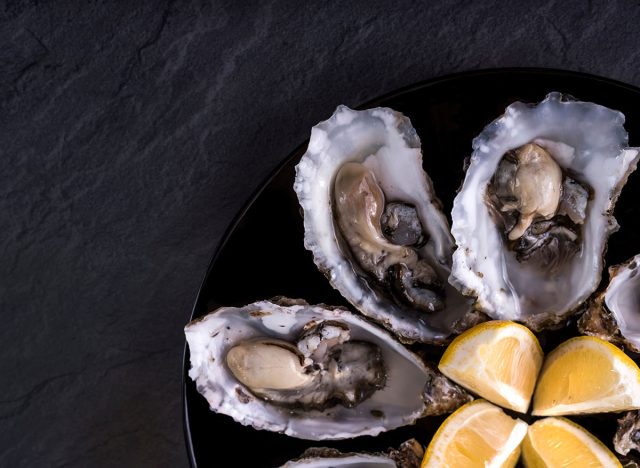

Oysters are a known aphrodisiac, perhaps in part due to the zinc that they contain. As we’ve already noted, zinc has been shown to result in improved testosterone levels, specifically among postmenopausal women. As we also mentioned earlier, females depend on healthy testosterone levels to support sexual health too, so even if you didn’t need another reason to love oysters, now you have one.
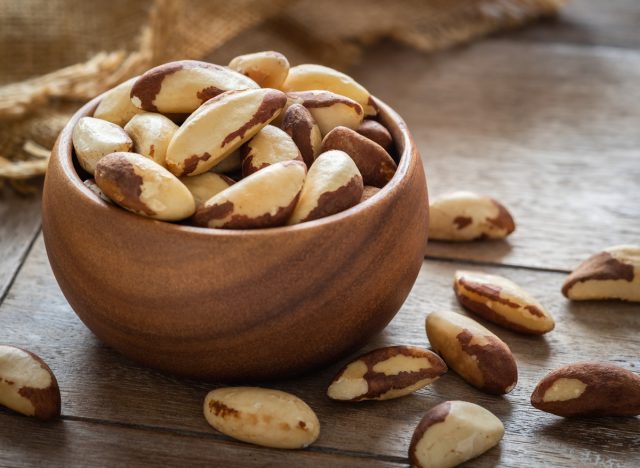

Found in soil, selenium is a powerful trace mineral—meaning your body only requires a little of it—that plays a variety of essential roles at both the cellular and organismal levels. There is also data to suggest that selenium is involved in testosterone creation. Since Brazil nuts are one of the best sources of this nutrient, consuming them may positively impact testosterone levels.
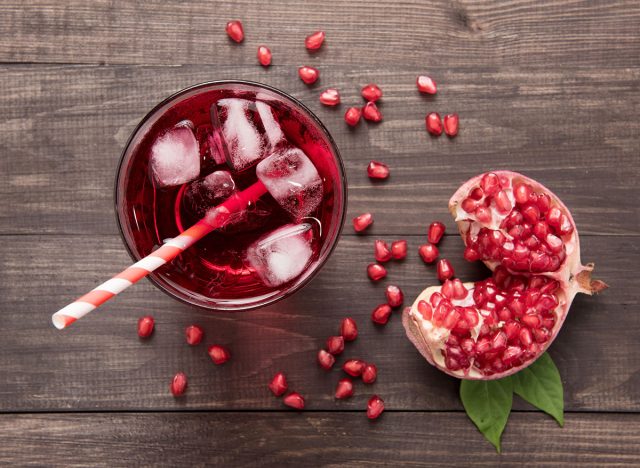

Pomegranate Juice is packed with natural polyphenol plant compounds, which may help increase testosterone levels. And data shows that consuming this polyphenol-rich drink has the potential to increase salivary testosterone levels, highlighting how consumption may positively impact testosterone levels.


Pouring yourself a glass of red wine may have a surprising effect on free testosterone (which is testosterone that is not attached to proteins). Not only does red wine consumption have antioxidant, lipid regulating, and anti-inflammatory effects, but red wine consumption may be linked to significantly higher free testosterone concentrations.
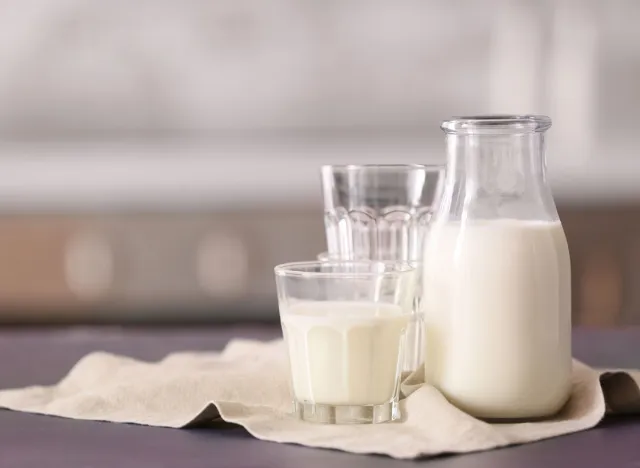

Milk is a source of 13 essential nutrients, with one less-popular one being boron. Evidence does indicate significant elevations in testosterone concentrations following boron supplementation. If you prefer to avoid milk fat, you can also find boron in prunes, dried and cooked beans, potatoes, and legumes.
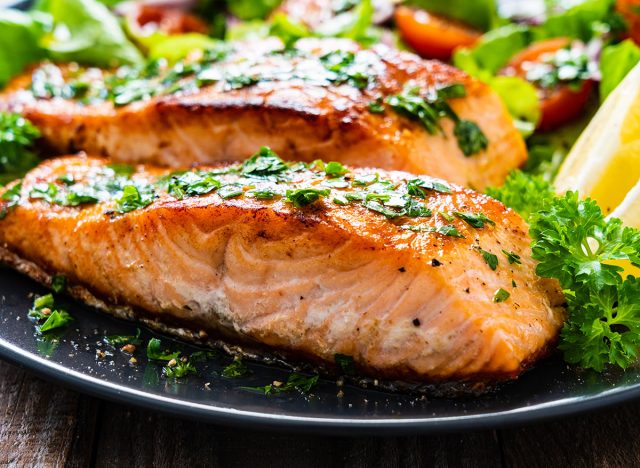

Salmon has a lot of benefits—including that it contains a slew of testosterone “boosting” nutrients like vitamin D, omega-3 fatty acids, and selenium. One study showed that men who took supplemental salmon oil for 90 days showed an increase in testosterone levels.
Lauren Manaker MS, RDN, LD, CLEC










